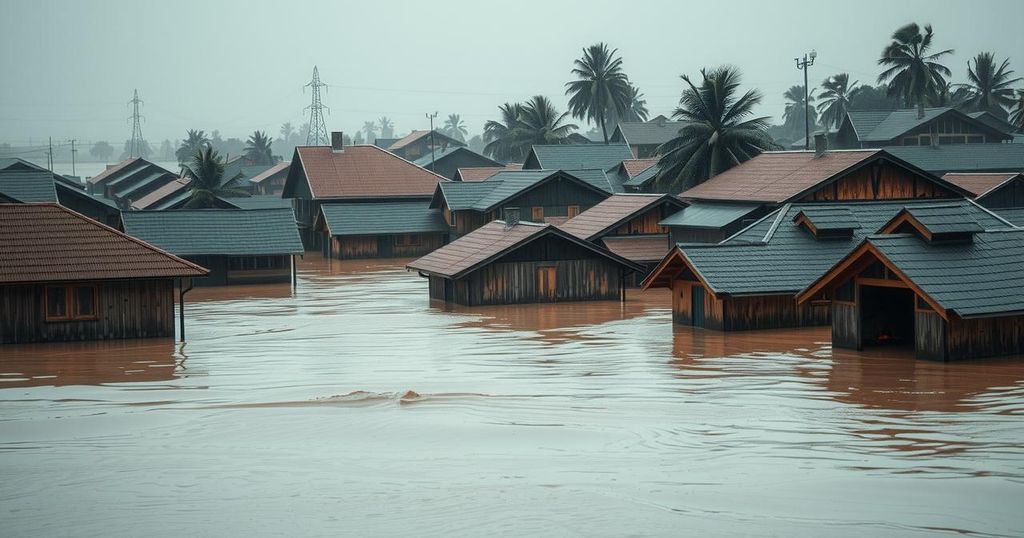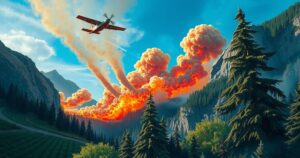Floods Kill at Least 111 in Northern Nigeria Amid Climate Challenges

Heavy rain leads to severe flooding in Mokwa, northern Nigeria, killing at least 111 people. The situation is expected to worsen as the death toll may rise. The flooding results from climate change and ongoing dry spells, affecting local communities during the wet season.
Heavy rainfall in northern Nigeria early Friday led to devastating floods that have taken the lives of at least 111 people in Mokwa, a market town pivotal for regional trade. Local officials have indicated that they expect the casualty numbers to rise as search and rescue operations continue in the aftermath of the disaster. This flooding follows a pattern of climate-related challenges in the area, where forced dry spells and sudden, intense rainfall have become commonplace.
The Nigerian Hydrological Services Agency has yet to provide specific data on the volume of rain that fell in Mokwa after midnight on Thursday. The town, situated over 180 miles west of Abuja, has a history of seasonal flooding aggravated by climate change and inconsistent weather patterns, making locals particularly vulnerable during the wet season.
Residents shared alarming images and videos on social media that depicted neighborhoods submerged, with only rooftops peeking above the floodwaters. Many found themselves waist-deep in rising water, struggling to rescue belongings or aiding neighbors in distress. While emergency services and volunteers work tirelessly, the scope of the impact remains to be fully assessed as communities begin to recover from the chaos.
The recent floods in northern Nigeria highlight the severe repercussions of climate change, including changing rainfall patterns and increased susceptibility to both droughts and deluges. With the death toll expected to rise, the focus now shifts to recovery efforts in flood-stricken areas. This catastrophe serves as a grim reminder of the pressing need for effective environmental policies to mitigate future disasters as the country’s weather patterns continue to evolve erratically.
Original Source: nanaimonewsnow.com






